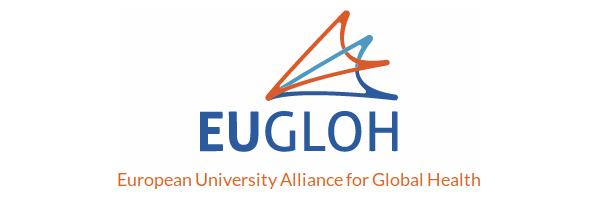Problemløsing ved bruk programmeringsspråk med åpen kildekode: R og Python / Problem Solving Using Open-Source Languages: R and Python


NORWEGIAN:
I oktober arrangerer Universitetet i Novi Sad et kurs hvor du lære om hvordan datahåndtering, statistisk analyse og maskinlæring er knyttet til programmering.
ENGLISH:
In October, the University of Novi Sad is organizing a course where you will learn about how data management, statistical analysis, and machine learning are linked to programming.
NORWEGIAN:
Dato: 1. oktober 2024 (kl.08:30) — 26. oktober 2024 (kl. 15.30)
Tidssone: CET Sted: Hybridkurs - deltakelse både online og ved Universitetet i Novi Sad
Målgruppe: Bachelor- og masterstudenter og stipendiater
Vert: Universitetet i Novi Sad
Påmeldingsfrist: 23. juli 2024 (23:59)
EUGLOH dekker utgifter til reise og opphold. Deltakere kan kontakte EUGLOH-teamet ved deres hjemuniversitet for å motta mer informasjon.
Dette er et hybridkurs som gir deltakerne en introduksjon til programvarene R og Python.
I løpet av kurset kan du lære mer om emner som datahåndtering og visualisering, samt statistisk analyse og maskinlæring.
Deltakerne vil motta 3 ECTS ved å fullføre kurset.
Det endelige prosjektet i kurset vil bli fullført ved Universitetet i Novi Sad.
Innhold og metodikk:
I den første uken vil deltakerne få en innføring i programmeringsspråkene R og Python, som omfatter oppsett av datamiljøet, grunnleggende syntaks, datatyper, samt grunnleggende datahåndtering og analyse.
I den andre uken vil læringsmålene dreie seg om datainngang/-utgang, bruk av dplyr i R og pandas i Python for datahåndtering, og bruk av ggplot2 i R samt matplotlib/seaborn i Python for datavisualisering.
Fokuset i den tredje uken vil skifte mot statistisk analyse ved bruk av R og Python, ledsaget av en introduksjon til maskinlæring. Overvåkede læringsalgoritmer, inkludert lineær regresjon, logistisk regresjon, beslutningstrær og tilfeldige skoger, vil bli introdusert.
I den avsluttende fasen vil det endelige prosjektet kreve at studentene engasjerer seg i en praktisk anvendelse av deres tilegnede ferdigheter og konsepter. Dette prosjektet vil innebære arbeid med R og/eller Python for å demonstrere dyktighet i verktøyene og metodene som er lært gjennom kurset.
Den nettbaserte delen av kurset vil skje 1., 2., 8., 9., 15. og 16. oktober fra 8:30 til 15:30, og den stedbaserte delen vil skjer i Novi Sad, Serbia, 25. og 26. oktober.
Ved fullføring av et kurs i problemløsing ved bruk av åpen kildekode-språkene R og Python, kan deltakerne forvente å oppnå kompetanse på følgende områder:
Kompetanseområder:
Digitale ferdigheter
Kritisk tenkning
Kreativitet og problemløsing
Krav til søkere:
Utvalgskriterier: Tidligere kunnskap om programvare er ikke nødvendig. Lærere som er interessert i å løse utfordringer på en kritisk og kreativ måte, gjennom å bruk R og/eller Python bør søke. Utvelgelse av deltakere er basert på søkernes egne mål for å ta kurset, samt spesifikke behov og interesseområder relatert til R og Python-programvaren, som søkeren beskriver i et motivasjonsbrev (påkrevd).
Et annet utvalgskriterium er om søkere kan bidra til å skape en mangfoldig gruppe deltakere, med bakgrunn fra ulike bransjer og ulikt erfaringsnivå, noe som kan bidra til å forsterke læring og samarbeid blant deltakerne.
Antall deltakere: 20
Diplom/ECTS: 3 ECTS
Språk: Engelsk.
Denne aktiviteten er en del av EUGLOHs arbeidspakke 2.

EUGLOH er en allianse mellom ni europeiske universiteter som legger til rette for mobilitet knyttet til forskning, undervisning og innovasjon. Alliansen støtter opp under aktiviteter, prosjekter og programmer som retter seg mot globale helseutfordringer. Denne virksomheten krysser fagdisipliner og har et spenn som også går utenfor den medisinske sektoren.
ENGLISH:
Date: 1 October 2024 08:30 — 26 October 2024 (15.30)
Timezone: CET
Location: Hybrid course, attendance both online and at University of Novi Sad
Target Group: Undergraduate, Master and PhD Students
Host: University of Novi Sad
Registration deadline: 23 July 2024 (23:59)
Please note that the participants will get a scholarship for travel and subsistence. The participants can contact the EUGLOH team at their home university to receive more information.
This is a hybrid course which gives participants an introduction to to the software programmes R and Python. During the course you can learn more about topics such as data manipulation and visualization and statistical analysis and machine learning.
The participants will earn 3 ECTS from completing the course. The final Project of the course will be completed at University of Novi Sad.
Content and Methodology:
In the initial week, participants will be given an introduction to the R and Python programming languages, encompassing the setup of the data environment, basic syntax, data types, as well as fundamental data manipulation and analysis.
Moving on to the second week, the learning objectives will revolve around data input/output, employing dplyr in R and pandas in Python for data manipulation, and utilizing ggplot2 in R as well as matplotlib/seaborn in Python for data visualization.
The focus of the third week will shift towards statistical analysis using R and Python, accompanied by an introduction to machine learning. Supervised learning algorithms, including linear regression, logistic regression, decision trees, and random forests, will be introduced.
In the concluding phase, the final project will require students to engage in a practical application of their acquired skills and concepts. This project will involve working with R and/or Python to demonstrate proficiency in the tools and methodologies learned throughout the course.
The online part of the course will take place on the 1st, 2nd, 8th, 9th, 15th and 16th of October from 8:30 to 15:30, and the onsite part will take place on the 25th and 26th of October.
Upon completion of a course on Problem Solving Using Open-Source Languages R and Python, learners can expect to achieve the following learning outcomes:
Competences:
Requirements:
Selection strategy: Previous knowledge about the software is not required. The learners interested in critically and creatively solving real-world problems using R and/or Python should apply. The selection strategy is based on goals and objectives for taking the course as well as specific needs and areas of interest related to R and Python software, which will be described in a motivation letter (required).
Another selection criteria is diversity in order to create a diverse group of participants, including those from different backgrounds, industries, and levels of experience, to promote learning and collaboration among participants.
Number of participants: 20
Certificate/ECTS: 3 ECTS
Language: English
This activity is part of EUGLOH’s Work Package 2

EUGLOH is an alliance between nine European universities that facilitates mobility related to research, teaching, and innovation. The alliance supports activities, projects, and programmes that address global health challenges. This crosses disciplinary boundaries and spans beyond the medical sector.